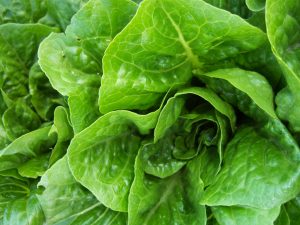 An unidentified person in California has been reported as the first fatality in a nationwide food poisoning outbreak from E. coli-contaminated romaine lettuce. The California Department of Public Health confirmed the death but did not provide any additional details, citing patient privacy laws. Federal investigators still have not determined how, when and where the bacteria contaminated the romaine and spread to so many people and places.
An unidentified person in California has been reported as the first fatality in a nationwide food poisoning outbreak from E. coli-contaminated romaine lettuce. The California Department of Public Health confirmed the death but did not provide any additional details, citing patient privacy laws. Federal investigators still have not determined how, when and where the bacteria contaminated the romaine and spread to so many people and places.
The infections have sickened a total of 121 people in 25 states, an increase of 23 people and three states since last week. Of the people sickened, 52 have been hospitalized, 14 of them with kidney failure. The hospitalization rate of 51 percent is far higher than usual, according to the U.S. Centers for Disease Control and Prevention.
California now leads the nation with 24 cases, followed by Pennsylvania with 20 and Idaho with 11. The first two cases in this outbreak were reported as becoming sick on March 13, according to the CDC. The most recent case was reported on April 21. More cases can be expected due to delays in onset, identification and reporting of illnesses.
The bacteria normally live in the intestines of animals, including cows and pigs, but there has been a surge in E. coli contamination of leafy greens. Many of the people sickened across the country consumed chopped lettuce that had been sold in bagged form to restaurants. In the salads, romaine lettuce was the only common ingredient. More than a dozen locations are under scrutiny for possible links to the cases, according to the Food and Drug Administration.
Federal health officials are advising consumers to throw away and avoid eating romaine lettuce. This advice includes whole heads and hearts of romaine, chopped romaine, baby romaine, organic romaine, and salads and salad mixes containing romaine lettuce. Health officials warn that washing your lettuce does not offer enough protection. Ian Williams, chief of the CDC’s Outbreak Response and Prevention Branch, “This bacteria can actually get inside the lettuce leaf. Washing it doesn’t make it safe.”
